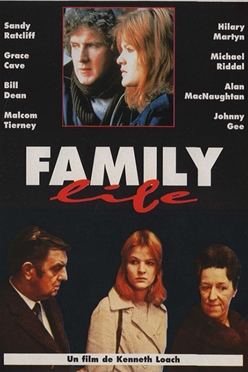Development and writing
Tony Garnett became interested in the work of psychiatrist R. D. Laing as a member of his family suffered from mental illness. He arranged for David Mercer to write a screenplay. It resulted in the play Two Minds which Garnett said was inspired by the story of Julie, a case in Laing's 1960 book The Divided Self. "I regretted later it might be seen as scapegoating the mother," wrote Garnett. Garnett wanted Roy Battersby to direct but he was unavailable so he went with Ken Loach.
The production was a success but Garnett said the fate and experience of his family member with the psychiatric profession "kept nagging away at me" so he decided to turn it into a film. Mercer was reluctant as "he rightly felt he had done the subject" but he was eventually persuaded. Garnett says Loach "didn't see the point but was easier to persuade. Directors always want to work in cinema."
"It's the only subject where I've insisted we had two bites at the cherry, for my own personal reasons," said Garnett. "It was so important to me, to do with a woman in my life and a painful time. Although it wasn't necessarily a sensible thing to do, it was almost an obsession in me to try to understand what had gone on."
Garnett claimed Mercer's "screenplay was barely adequate. It was lazy, perhaps because his heart wasn't in it. I wanted to do more work on it with him. He was reluctant. I probably should have called it a day then. With David on strike, but naturally reluctant to allow me to rewrite it, we had an insecure basis for a film. It was probably my fault for pressing him into it." However the producer says the movie was rescued by Loach who "gave a sense that we were witnessing life rather than actors doing their thing."
Financing
Half the budget was provided by the National Film Finance Corporation, who had financed the script; the other half came from Nat Cohen and Anglo-EMI, who had previously financed successful films from Ken Loach ( Poor Cow ) and Garnett ( The Body ). [11] [12] Garnett wrote in his memoirs that when he pitched the project to Cohen, the executive summarised the story as "So, a mad girl goes into a mental hospital and goes madder. An unhappy ending. No laughs, no sex." He then said "You and Ken, you know, we could make a lot of money with you. If you weren't such a bunch of bloody communists." Although Garnett and Loach wanted to use an unknown in the lead, Cohen gave the money. (Loach thought the film only got financed because the lead was a 19 year old girl.) [14]
